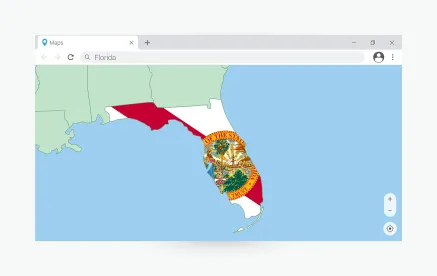Impacting environmental, social and corporate governance (ESG) initiatives of the financial industry in Florida, on April 19, 2023, the Florida Senate passed Florida House Bill 3 (HB 3 or the Bill) by a vote of 28 YEAS to 12 NAYS. The Florida House of Representatives passed HB 3 on March 24, 2023.1 The Bill now awaits the signature of Gov. DeSantis, who is expected to sign the Bill into law.
HB 3 amends several Chapters of the Florida Statutes including Chapter 280 (Florida Security for Public Deposits Act), Chapter 516 (Florida Consumer Finance Act), Chapter 560 (Money Services Business) and Chapter 655 (Financial Institutions), to require a “qualified public depository,” “consumer finance company,” “money services business,” and state-chartered and state-authorized financial institution in Florida (including a Florida-chartered bank, trust company, credit union, international bank agency, international branch, international representative office and international administrative office of a foreign bank) (collectively, Financial Institutions) to make a determination about the provision or denial of services to a customer based on an analysis of risk factors that are unique to each individual current or prospective customer.
HB 3 creates new “unsafe and unsound practice” standards for Financial Institutions, prohibiting the denial or cancellation of services to current or prospective customers, or otherwise discriminating against customers, on the basis of:
a. the customer’s political opinions, speech, or affiliations;
b. the customer’s religious beliefs, religious exercise, or religious affiliations;
c. any factor if it is not a quantitative, impartial, and risk-based standard, including any factor related to the customer’s business sector; or
d. any rating, scoring, analysis, tabulation, or action that considers a social credit score based on factors, including (without limitation) a customer’s:
1. political opinions, speech, or affiliations;
2. religious beliefs, religious exercise, or religious affiliations;
3. lawful ownership of a firearm;
4. engagement in the lawful manufacture, distribution, sale, purchase, or use of firearms or ammunition;
5. engagement in the exploration, production, utilization, transportation, sale, or manufacture of fossil fuel-based energy, timber, mining, or agriculture;
6. support of the state or federal government in combatting illegal immigration, drug trafficking, or human trafficking;
7. engagement with, facilitation of, employment by, support of, business relationship with, representation of, or advocacy for, any person covered by section (d) 1-6 and 8 herein;
8. failure to meet or commit to meet, or expected failure to meet, any of the following (so long as the customer is in compliance with applicable state or federal law):
i. environmental standards, including emissions standards, benchmarks, requirements, or disclosures;
ii. social governance standards, benchmarks, or requirements, including, but not limited to, environmental or social justice;
iii. corporate board or company employment composition standards, benchmarks, requirements, or disclosures based on characteristics protected under the Florida Civil Rights Act of 1992; or
iv. policies or procedures requiring or encouraging employee participation in social justice programming including, but not limited to, diversity, equity or inclusion training.
Annual Attestation Requirement
HB 3 requires Financial Institutions, beginning July 1, 2023, and by July 1 of each year thereafter, to attest their compliance with the new “unsafe and unsound practice” standards, under penalty of perjury, on a form to be prescribed by Florida’s chief financial officer (CFO) or the Florida Financial Services Commission, as applicable.
A Financial Institution’s failure to comply with the Bill’s “unsafe and unsound practice” standards or attestation requirement will constitute a violation of the relevant Florida statute and subject the Financial Institution to sanctions and penalties under Florida’s financial institutions codes. Under HB 3, a violation of an “unsafe and unsound practice” by a Florida-licensed financial institution will also constitute a violation of the Florida Deceptive and Unfair Trade Practices Act under Chapter 501, Florida Statutes.
Specifically for a “qualified public depository,” the Bill provides that if the Florida CFO determines a “qualified public depository” has submitted an attestation that is materially false, the CFO must report this determination to the Florida Attorney General (AG) for civil or administrative action for damages, injunctive relief, and any other relief the AG deems appropriate against the “qualified public depository.” If the AG’s action is successful, the AG would also be entitled to reasonable attorney’s fees and costs.
Impact on Investment Advisers
While HB 3 does not amend Chapter 517 (Florida Securities and Investor Protection Act) to impose “unsafe and unsound practice” standards on Florida investment advisers and broker-dealers, the Bill amends Chapter 215 of the Florida Statutes, which covers, in part, Florida investment advisers or managers who (i) have discretionary investment authority over direct holdings in the Florida System Trust Fund; and (ii) are retained by the Trustees of the Florida State Board of Administration (Board) in relation to a trust fund.
The Bill requires these investment advisers or managers to annually certify in writing to the Board that:
[a]ll investment decisions made on behalf of the trust funds and the [Board] are made based solely on pecuniary factors as defined in s. 215.47(10)(a) and do not subordinate the interests of the participants and beneficiaries of the funds to other objectives, including sacrificing investment return or undertaking additional investment risk to promote any non-pecuniary factor.
The Bill creates Section 215.47(10)(a), Florida Statutes to define “pecuniary factors” as follows:
a factor that the [Board] prudently determines is expected to have a material effect on the risk or return of an investment based on appropriate investment horizons consistent with applicable investment objectives and funding policy. The term does not include the consideration of the furtherance of any social, political, or ideological interests (emphasis added).[2]
The certification requirement applies to any contract between the Board and an investment adviser or manager that is executed, amended, or renewed on or after July 1, 2023.
Failure to timely file the certification is grounds for termination of any contract between the Board and the investment adviser or manager. Additionally, failure by an investment adviser or manager to comply with the fiduciary standards set forth in the certification must be reported by the Board to the Florida AG, who may bring a civil or administrative action for damages, injunctive relief, and such other relief as it may deem appropriate. If the action is successful, the AG is entitled to reasonable attorney’s fees and costs.
Expectations of Signing and Considerations for Financial Institutions
HB 3 is a policy priority of Gov. DeSantis, Florida CFO Jimmy Patronis, and Speaker of the House Paul Renner. The Republican supermajority in both chambers of the Florida legislature has supported HB 3, and it is expected that Gov. DeSantis will sign HB 3 into law.
As with any law, HB3 may be subject to a state or federal constitutionality challenge, accompanied by a request for an injunction to enjoin enforcement of the law pending a resolution of the constitutionality challenge. If such a challenge is initiated in a Florida circuit court or a federal district court, it is reasonable to expect that the challenging party would seek expedited review.
The Department of Management Services (DMS) and the Florida Office of Financial Regulation (OFR) are expected to engage in rulemaking to implement the requirements of HB 3. Florida’s Administrative Procedure Act (APA) governs rule promulgation processes and provides an opportunity for interested persons to comment on proposed rules. Furthermore, once an agency files a notice of the proposed rule in the Florida Administrative Register, persons who are deemed to be “substantially affected” may challenge the proposed rule by filing a petition with the Florida Division of Administrative Hearings (DOAH).
In light of the variables surrounding the general rulemaking process and timelines prescribed under the Florida APA, DMS or OFR may decide to engage in emergency rulemaking to implement the requirements of HB 3, if those agencies determine that emergency rulemaking is necessary to protect the public health, safety, or welfare. “Substantially affected persons” would have an opportunity to challenge an emergency rule with the DOAH or file a petition with Florida’s District Court of Appeal.
At this time, it is unclear whether implementing regulations will be issued, or the validity of such regulations definitively determined, by the July 1, 2023, attestation deadline. Nonetheless, financial institutions and investment advisers or managers affected by the Bill should begin reviewing their current ESG policies and practices to determine whether any revisions will need to be implemented to comply with the new requirements imposed by HB 3.
1 See GT Alert covering HB 3, on March 10, 2023.
2 When deciding whether to invest and when investing the assets of any fund, the Board is required to make decisions based solely on pecuniary factors and not subordinate the interests of the participants and beneficiaries of the fund to other objectives, including sacrificing investment return or undertaking additional investment risk to promote non-pecuniary factors.
UPDATED:
On May 2, 2023, Florida Gov. Ron DeSantis held a press conference where he signed Florida House Bill 3 (HB 3) into law. HB 3 directly impacts environmental, social and corporate governance (ESG) initiatives of the financial industry in Florida and is a policy priority of Gov. DeSantis, Florida Chief Financial Officer Jimmy Patronis, and Speaker of the House Paul Renner.
Florida Rep. Bob Rommel (R-Naples) introduced HB 3 in the Florida House of Representatives on Feb. 20, 2023. On March 24, 2023, the House passed HB 3 (80 YEAS to 31 NAYS); on April 19, 2023, the Senate passed it as well (28 YEAS to 12 NAYS).
On April 26, 2023, GT published an alert, “Florida Senate Passes Legislation Impacting ESG Initiatives of Financial Businesses Operating in Florida,” discussing various aspects of HB 3 in detail. Click here to view the alert.
HB 3 is set to go into effect July 1, 2023.







 />i
/>i

